Moderate overlap front: original test
Rating applies to 2003-11 models
Tested vehicle: 2003 Saab 9-3 Linear 4-door
The Saab 9-3 was redesigned for the 2003 model year.
The frontal offset crash test ratings also apply to the station wagon version of the 9-3, known as the SportCombi, beginning with its introduction in the 2006 model year.
| Evaluation criteria | Rating |
|---|---|
| Overall evaluation | |
| Structure and safety cage | |
| Driver injury measures | |
| Head/neck | |
| Chest | |
| Leg/foot, left | |
| Leg/foot, right | |
| Driver restraints and dummy kinematics | |

Action shot taken during the frontal offset crash test.
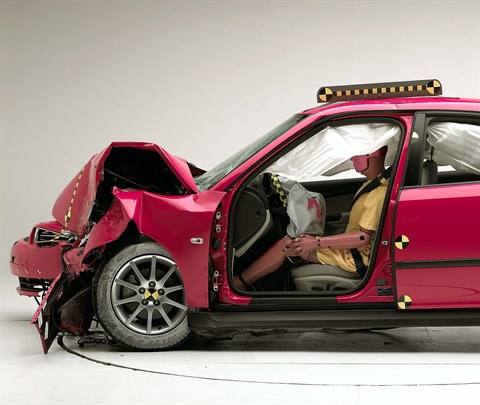
The dummy's position in relation to the steering wheel and instrument panel after the crash test indicates that the driver's survival space was maintained well.
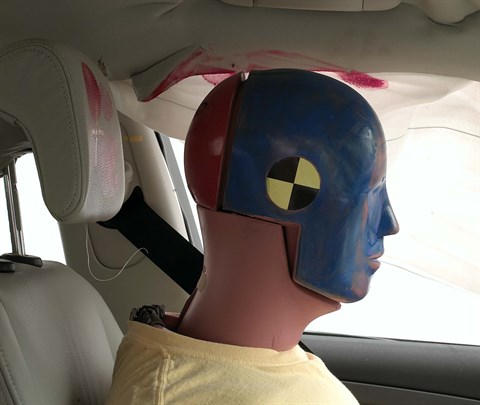
Dummy movement was well controlled. During rebound, the dummy's head hit only the deployed side curtain airbag, its fabric cover, and the head restraint.<strong> </strong>.
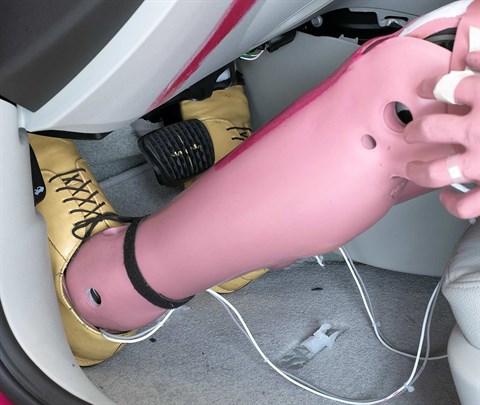
There was little change in the position of the dummy's feet following the crash test. Injury risk was low.
Side: original test
Rating applies to 2004-11 models built after December 2003
Tested vehicle: 2004 Saab 9-3 Linear 4-door with standard front and rear head curtain airbags and standard front seat-mounted torso airbags
The Saab 9-3 was redesigned for the 2003 model year. Modifications were made to the side torso airbags for 2004 and later models built after December 2003 to improve occupant protection in side-impact crashes.
The side impact crash test ratings also apply to the station wagon version of the 9-3, known as the SportCombi, beginning with its introduction in the 2006 model year.
| Evaluation criteria | Rating |
|---|---|
| Overall evaluation | |
| Structure and safety cage | |
| Driver injury measures | |
| Head/neck | |
| Torso | |
| Pelvis/leg | |
| Driver head protection | |
| Rear passenger injury measures | |
| Head/neck | |
| Torso | |
| Pelvis/leg | |
| Rear passenger head protection | |
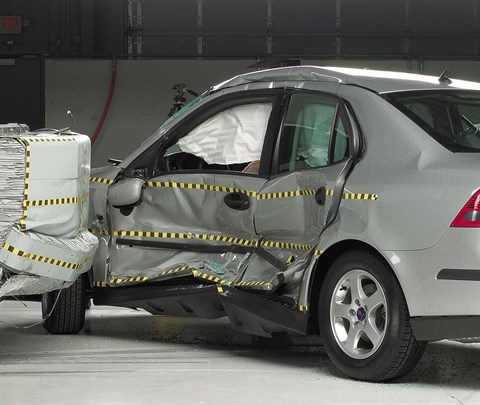
View of the vehicle and barrier just after the crash test.
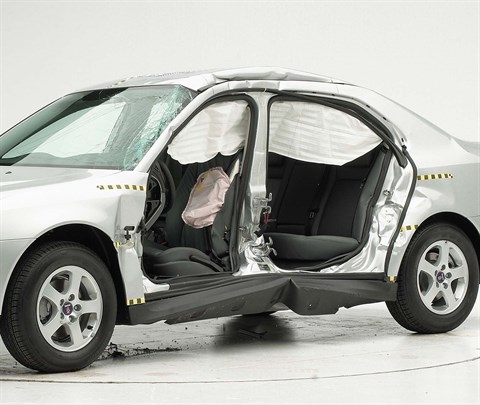
View of the vehicle after the crash with doors removed, showing the side airbags and damage to the occupant compartment.
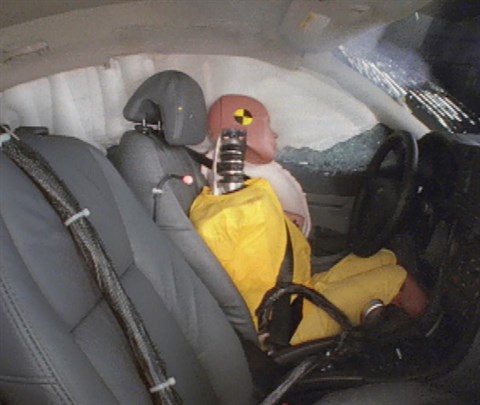
Action shot taken during the side impact crash test showing the driver dummy's head was protected from being hit by hard structures by the side airbags.
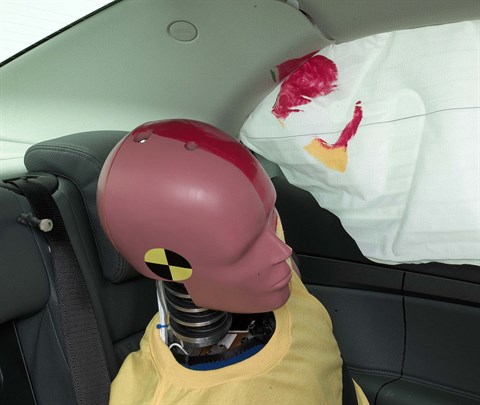
Smeared greasepaint shows where the rear passenger dummy's head was protected by the side airbag.
Roof strength
Rating applies to 2003-11 models
Tested vehicle: 2011 Saab 9-3 Sport Sedan 4-door
| Overall evaluation | |
|---|---|
| Curb weight | 3,344 lbs |
| Peak force | 11,482 lbs |
| Strength-to-weight ratio | 3.43 |
Head restraints & seats
Seat type: All seats AHR
| Overall evaluation | |
|---|---|
| Dynamic rating | |
| Seat/head restraint geometry |
About the head restraint & seat test
Currently, IIHS tests apply only to front seats.
